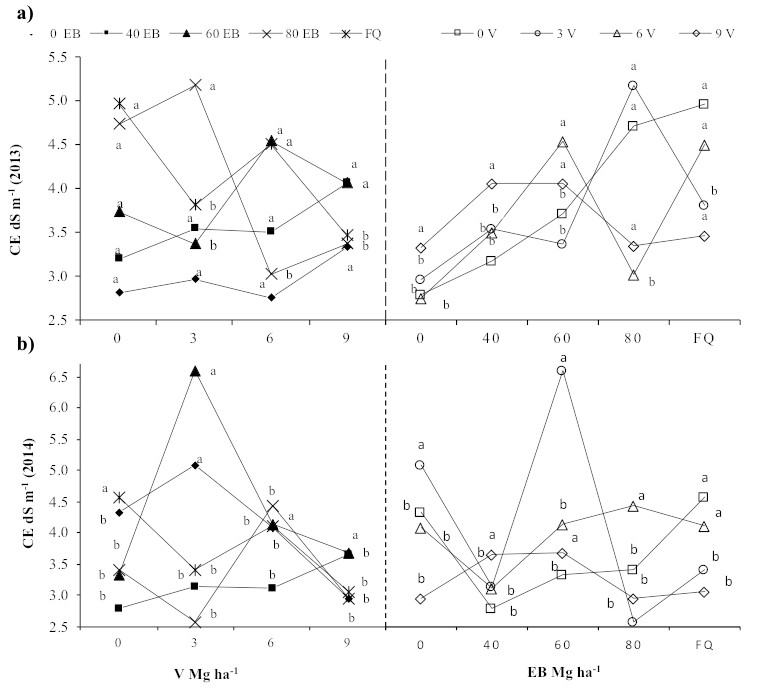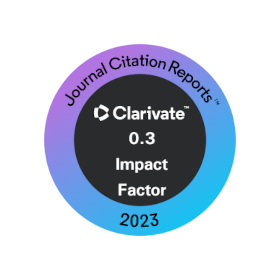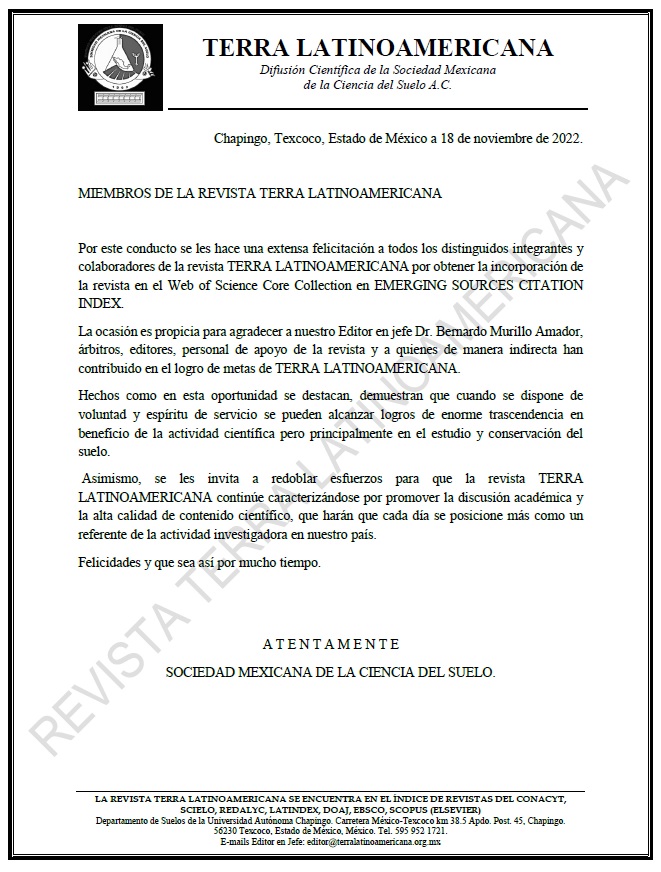Effects of applying bovine manure and vermicompost on soil in watermelon (Citrullus lanatus) cultivation
DOI:
https://doi.org/10.28940/terra.v40i0.835Keywords:
electric conductivity, organic fertilizers, organic matterAbstract
The use of residues in agricultural production systems requires the use of different organic fertilizers to find application levels and possible combinations that produce quality crops. Thus, the objective of this study is to evaluate the effects of bovine manure (EB) and vermicompost (V) on soil, as well as the positive result in watermelon production. EB and V were applied in the same experimental site for two continuous cycles (2013-2014): EB at the levels of 0, 40, 60 and 80 Mg ha‑1, considering chemical fertilization for the Comarca Lagunera (FQ) 120-60 -00 and V 0, 3.0, 6.0 and 9.0 Mg ha-1. Soil samples were taken at the beginning and end of each year at three depths taking into consideration the plant root area and moisture bulb 0-15, 15-30 and 30-45 cm, evaluating organic matter (MO), pH, electrical conductivity (CE) and nitrates (NO3-). Total soluble solids (°Bx) and yield were evaluated in the fruit. The highest contents of MO (3.23% in 2013) and NO3- (41.4 kg ha-1 in 2014) were found at 0-15 cm with the interaction of 80 Mg ha-1 (EB) and 9.0 Mg ha-1 (V). CE increased to 6.6 dS m-1 from 0-15 cm, which after two application cycles implied the decrease in yield to 66.1% at the levels of 80 Mg ha-1 (EB) and 3.0 Mg ha -1 (V). In 2014 differences were found for yield and °Bx when the highest yield (29.2 Mg ha-1) was obtained at 80 Mg ha-1 EB level with 6.0 Mg ha-1 of V and for °Bx equal to 8.4 in the interaction of 60 Mg ha-1 of EB with 9.0 Mg ha-1 of vermicompost.
Downloads
















